The PSTT Team
-
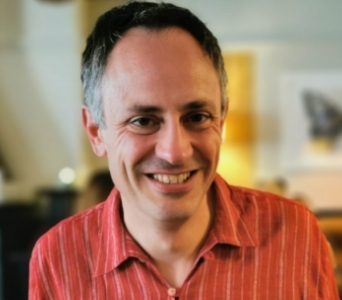
Martin Pollard
Chief Executive Officer
-
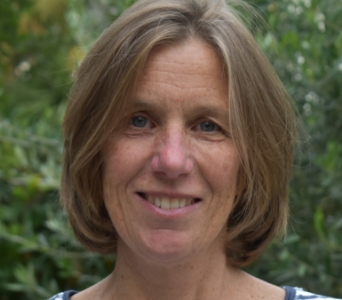
Alison Eley
Director of National Programme
-
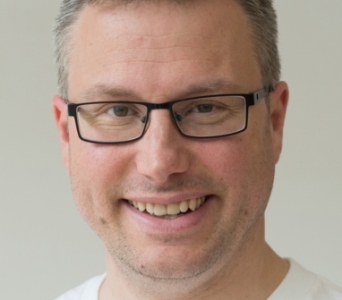
Tom Holloway
Director of Regional Programme
-
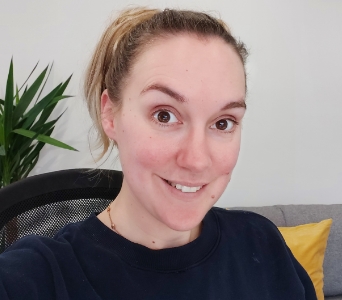
Sophie Franklin
Impact and Research Director
-
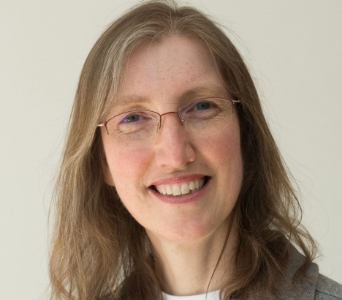
Alison Trew
Impact and Research Director (acting) and Regional Mentor
-
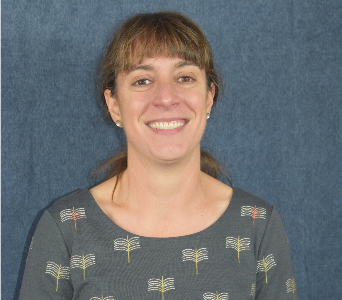
Ellen Edwards
Finance Director
-
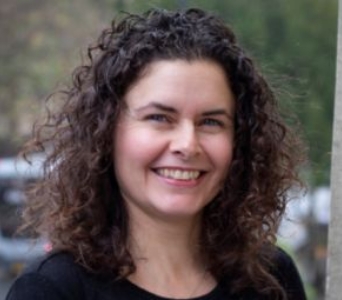
Wendy Woodsford
Operations Manager
-
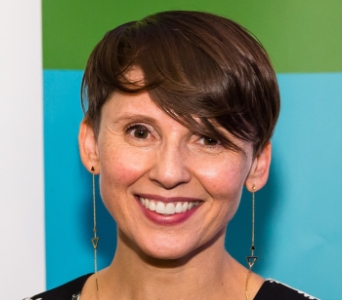
Ruth Shallcross
CPD and Resources Lead
-
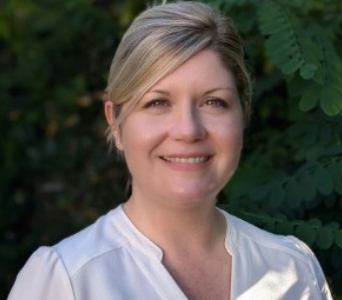
Barbara French
Communications and Content Manager
-
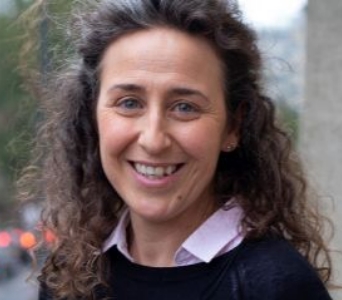
Sagra Diaz Mata
Finance Officer
-
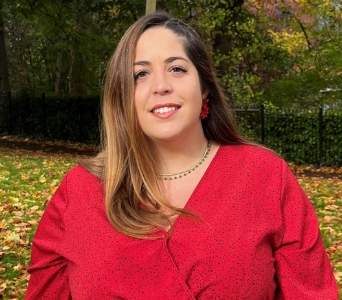
Paula Montero
Office Administrator
-
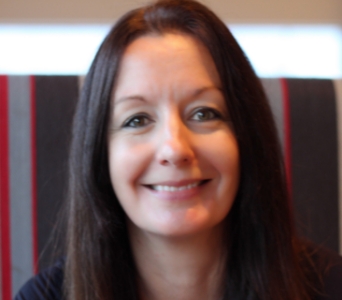
Kate Redhead
Regional Mentor
-
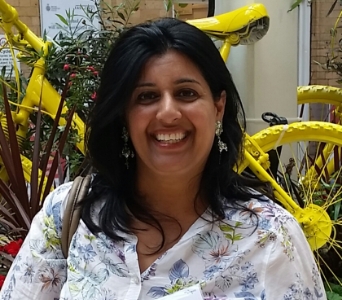
Kulvinder Johal
Priority Areas Mentor and Regional Mentor
-
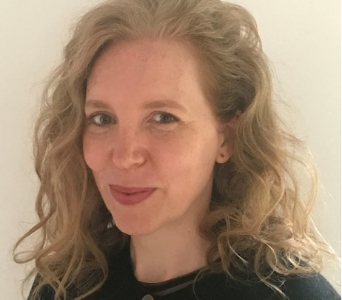
Rebecca Ellis
Regional Mentor
-
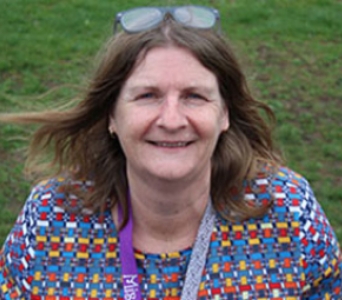
Sarah Eames
Regional Mentor and Area Mentor for West Midlands
-
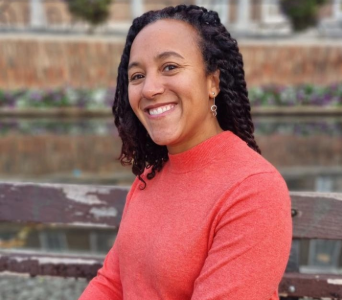
Stacey Reid
Regional Mentor
-
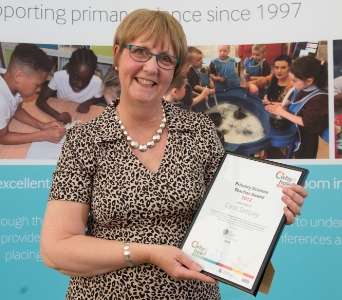
Carol Sampey
Area Mentor for Wessex and South Wales
-
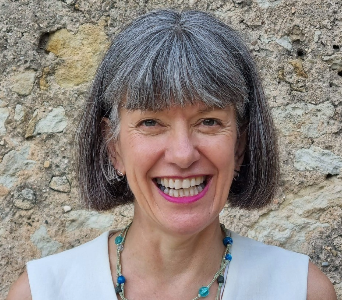
Jo Moore
Area Mentor for Greater London
-
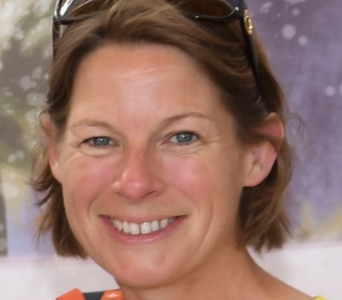
Katharine Pemberton
Area Mentor for South West England
-
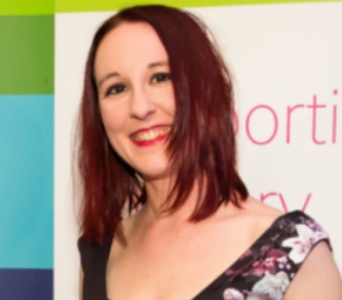
Kathryn Horan
Area Mentor for East Midlands
-
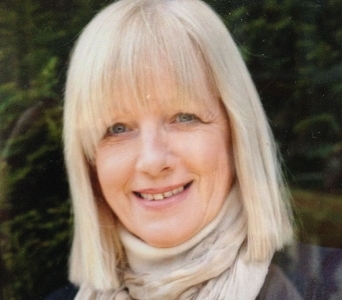
Linda McKee
Area Mentor for Northern Ireland
-
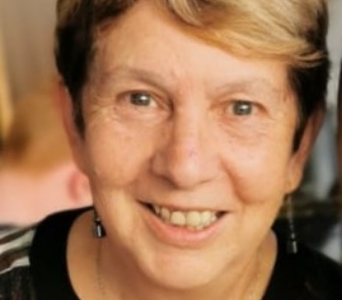
Lesley Hunter
Area Mentor for Northern Ireland
-
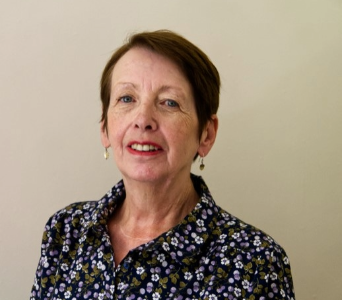
Michele Grimshaw
Area Mentor for North West England
-
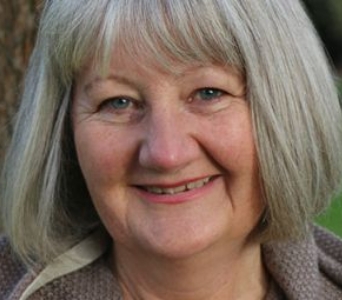
Nina Spilsbury
Area Mentor for the West Midlands
Martin Pollard has more than 20 years of experience working in education. He began his career as a secondary English teacher before moving to the Council for Education in World Citizenship, where he organised many conferences, workshops and debates on global issues. He provided CPD training to more than 2,000 teachers, with a particular focus on enquiry-based learning in primary schools.
Martin became Chief Executive of the Welsh Centre for International Affairs in 2009, taking the charity through a period of significant growth and change. This included launching the Welsh Government funded Hub Cymru Africa partnership and Wales for Peace, a major World War I centenary programme. More recently, he was Chief Executive at the Learned Society of Wales, a national scholarly academy for sciences and arts.
Among other previous roles, Martin was a founder member of the Celtic Academies Alliance, Chair of the Wales Alliance for Global Learning, national representative on the World Schools Debating Council, and trustee of the Wales Council for Voluntary Action. He was a finalist in the 2018 Leading Wales Awards.
Martin became Chief Executive of the Welsh Centre for International Affairs in 2009, taking the charity through a period of significant growth and change. This included launching the Welsh Government funded Hub Cymru Africa partnership and Wales for Peace, a major World War I centenary programme. More recently, he was Chief Executive at the Learned Society of Wales, a national scholarly academy for sciences and arts.
Among other previous roles, Martin was a founder member of the Celtic Academies Alliance, Chair of the Wales Alliance for Global Learning, national representative on the World Schools Debating Council, and trustee of the Wales Council for Voluntary Action. He was a finalist in the 2018 Leading Wales Awards.
Ali Eley has been a fellow of the Primary Science Teaching Trust since 2012. Ali’s teaching career has included being a science subject leader in primary schools in Somerset and South West London, working in Initial Teacher Education as a senior lecturer in primary science at St. Mary’s University, and leading research and development for the Richmond Primary Teaching School Alliance. Ali has written for teacher journals, and is on the editorial board for Primary Science. Ali is the creator of the PSTT resource, “I can explain!”
Her particular areas of interest are children’s scientific literacy, teachers as researchers, and evidence-informed approaches to practice in primary science.
Her particular areas of interest are children’s scientific literacy, teachers as researchers, and evidence-informed approaches to practice in primary science.
Tom Holloway was awarded a Primary Science Teacher of the Year Award in 2013, endorsed by the Royal Society of Chemistry.
Before joining the PSTT he was a classroom teacher for 10 years and a Science Leader for 8. Always passionate and enthusiastic about science he became a PSQM hub leader, Ogden Trust teacher fellow and the Science Leader for the Glyn Learning Foundation. He successfully led his school to a PSQM Gold Award, set up dedicated science labs in 3 schools and developed educational resources for the Royal Society of Chemistry (where he was the member of their Primary Teaching Advisory Group). He has delivered CPD for the Surrey and Sussex STEM Science Learning Partnerships and organised large science events for hundreds of children at the University of Surrey.
Tom is now a Regional Mentor for the PSTT. He supports schools in Surrey, Sussex, Kent and Hampshire to develop their curriculums and teaching to ensure that their pupils receive and outstanding science education and are engaged and enthused by the subject.
Before joining the PSTT he was a classroom teacher for 10 years and a Science Leader for 8. Always passionate and enthusiastic about science he became a PSQM hub leader, Ogden Trust teacher fellow and the Science Leader for the Glyn Learning Foundation. He successfully led his school to a PSQM Gold Award, set up dedicated science labs in 3 schools and developed educational resources for the Royal Society of Chemistry (where he was the member of their Primary Teaching Advisory Group). He has delivered CPD for the Surrey and Sussex STEM Science Learning Partnerships and organised large science events for hundreds of children at the University of Surrey.
Tom is now a Regional Mentor for the PSTT. He supports schools in Surrey, Sussex, Kent and Hampshire to develop their curriculums and teaching to ensure that their pupils receive and outstanding science education and are engaged and enthused by the subject.
After completing her Chemistry degree at the University of Bristol in 2010, Sophie joined the PSTT to evaluate the long-term impact and sustainability of some of the Trust’s work. This work contributed to her Masters degree, which she achieved in 2011. She then went on to complete a PhD in Science Education, focussing on exemplary primary science teachers and teaching, challenging the idea that a science degree is a requirement of an excellent primary science teacher.
Sophie has worked across a number of areas within the PSTT, including marketing and events, website management, resource creation and as Cluster Director, where she helped develop the strategy and vision of the Cluster Programme.
After returning from maternity leave in 2020, she became Research Director, a role which includes: supporting PSTT Fellows in their research, and monitoring and evaluating all PSTT activity to develop more efficient tools and improve practices. Sophie understands the importance of evaluation, the sharing of ideas and good practice in science education and actively seeks to produce results from her work which can subsequently help improve the quality of science education for children. Sophie also holds the role of Senior Research Associate at the University of Bristol.
As a science communicator, Sophie has engaged with thousands of students and teachers both nationally and internationally; including participating in the SEEDS (Systemic Education and Extra-Mural Development and Support) Scifest Africa Outreach Project, performing chemistry shows and teacher workshops in rural schools in South Africa. Sophie has also worked with students and teachers from township schools in Namibia at the National Science Technology and Innovation Week (NAMSCI), providing teacher CPD and student workshops.
When not working, Sophie can normally be found cooking, doing DIY, or exploring the outdoors, always followed closely by her two young children.
Sophie has worked across a number of areas within the PSTT, including marketing and events, website management, resource creation and as Cluster Director, where she helped develop the strategy and vision of the Cluster Programme.
After returning from maternity leave in 2020, she became Research Director, a role which includes: supporting PSTT Fellows in their research, and monitoring and evaluating all PSTT activity to develop more efficient tools and improve practices. Sophie understands the importance of evaluation, the sharing of ideas and good practice in science education and actively seeks to produce results from her work which can subsequently help improve the quality of science education for children. Sophie also holds the role of Senior Research Associate at the University of Bristol.
As a science communicator, Sophie has engaged with thousands of students and teachers both nationally and internationally; including participating in the SEEDS (Systemic Education and Extra-Mural Development and Support) Scifest Africa Outreach Project, performing chemistry shows and teacher workshops in rural schools in South Africa. Sophie has also worked with students and teachers from township schools in Namibia at the National Science Technology and Innovation Week (NAMSCI), providing teacher CPD and student workshops.
When not working, Sophie can normally be found cooking, doing DIY, or exploring the outdoors, always followed closely by her two young children.
Alison started her career as a biochemist and has worked on various medical research projects. After having her own children and discovering a passion for sharing science with young children, she completed a Primary PGCE and has taught all ages from reception to year 6. She was awarded the PSTT’s Primary Science Teaching Award in 2014.
In 2016 Alison started working for the Primary Science Teaching Trust. For five years she was an Area Mentor supporting PSTT Fellows in the South West. She has provided workshops at ASE, PSTT and STEM conferences, taught on Initial Teacher Education programmes, written articles for teacher journals and is co-author of Standing on the Shoulders of Giants. She has written several of PSTT’s online resources: Floorbooks, Enquiry Skills, Enquiry Approaches, I bet you didn’t know, Play Observe and Ask, A Scientist Just Like Me. Alison has also worked with the Teaching Assessment in Primary Science (TAPS) team at Bath Spa University developing focused assessment tasks, and is an accredited trained for Thinking Doing Talking Science and the Primary Science Capital Teaching Approach.
Currently, Alison is a Regional Mentor and acting Impact & Research Director. She would be delighted to hear from anyone wanting to develop primary science in their setting.
In 2016 Alison started working for the Primary Science Teaching Trust. For five years she was an Area Mentor supporting PSTT Fellows in the South West. She has provided workshops at ASE, PSTT and STEM conferences, taught on Initial Teacher Education programmes, written articles for teacher journals and is co-author of Standing on the Shoulders of Giants. She has written several of PSTT’s online resources: Floorbooks, Enquiry Skills, Enquiry Approaches, I bet you didn’t know, Play Observe and Ask, A Scientist Just Like Me. Alison has also worked with the Teaching Assessment in Primary Science (TAPS) team at Bath Spa University developing focused assessment tasks, and is an accredited trained for Thinking Doing Talking Science and the Primary Science Capital Teaching Approach.
Currently, Alison is a Regional Mentor and acting Impact & Research Director. She would be delighted to hear from anyone wanting to develop primary science in their setting.
Ellen is AAT level 4 qualified and part CIMA qualified. She is working towards completing her MBA in Leading Business in 2024 before returning to conclude her CIMA studies.
Ellen has worked for the voluntary and local authority sector since graduating from Manchester University in 2021 in Mathematics and English Literature. Working for the Citizens Advice Bureau led to a specialism in welfare rights advice before retraining as an accountant in 2012. She became Head of Finance and Operations for Gloucestershire Counselling Service in 2018, overseeing all aspects of financial management and operations within the organisation. This included contributing strategically to the direction of the organisation and to the significant growth experienced.
Ellen has held many voluntary roles over the years including Chairing a number of charities; North Bristol Advice Centre, Rodborough Playgroup and Friends of Rodborough School. More recently she has become a parent governor for Rodborough Community Primary School.
Ellen has worked for the voluntary and local authority sector since graduating from Manchester University in 2021 in Mathematics and English Literature. Working for the Citizens Advice Bureau led to a specialism in welfare rights advice before retraining as an accountant in 2012. She became Head of Finance and Operations for Gloucestershire Counselling Service in 2018, overseeing all aspects of financial management and operations within the organisation. This included contributing strategically to the direction of the organisation and to the significant growth experienced.
Ellen has held many voluntary roles over the years including Chairing a number of charities; North Bristol Advice Centre, Rodborough Playgroup and Friends of Rodborough School. More recently she has become a parent governor for Rodborough Community Primary School.
Wendy joined the Trust in 2018.
She has extensive experience in events and marketing with a strong track record in project management, planning, supplier and stakeholder management. Skilled in the management of multiple concurrent projects, Wendy is enjoying drawing on her organisational skills to support the PSTT.
Wendy has a broad range of experience and previous roles within a range of organisations including multinational corporations, an ethical bank and individual local charities. She has a degree in Environmental Science and a love of nature and the world around us.
She has extensive experience in events and marketing with a strong track record in project management, planning, supplier and stakeholder management. Skilled in the management of multiple concurrent projects, Wendy is enjoying drawing on her organisational skills to support the PSTT.
Wendy has a broad range of experience and previous roles within a range of organisations including multinational corporations, an ethical bank and individual local charities. She has a degree in Environmental Science and a love of nature and the world around us.
Ruth Shallcross has been a Fellow of the Primary Science Teacher College since 2013. During her teaching career she has worked in three North London schools each with a contrasting pupil demographic. She has held a number of roles: class teacher, subject leader and most recently Assistant Headteacher. For much of her career Ruth has combined her role in school with working as an Advanced Skills Teacher/Lead Practitioner for the Local Authority. Ruth has coached and mentored a range of colleagues in the development of teaching and learning, and subject leadership; her focus is on the empowerment of colleagues and building capacity.
Ruth is passionate about helping all children to succeed and seeks to achieve this through creative approaches to teaching often using cross-curricular links to deepen engagement. Her particular areas of interest are scientific literacy, making abstract concepts understandable and creating enjoyable learning experiences.
Ruth is passionate about helping all children to succeed and seeks to achieve this through creative approaches to teaching often using cross-curricular links to deepen engagement. Her particular areas of interest are scientific literacy, making abstract concepts understandable and creating enjoyable learning experiences.
After completing her degree in International Relations from Middle Tennessee State University, Barbara moved to South Korea in 2012. Here, she taught ESL at several state schools before becoming lead teacher at an international school in the southern city of Gwangju.
Following this role, Barbara became a private tutor, while at the same time undertaking a master’s degree in Public Policy at the University of York. This degree instructed her desire to work for an organisation that influenced policy change to improve educational standards.
After graduating, she moved to the UK where she joined the Primary Science Teaching Trust as Events and Communications Manager. Her role within PSTT consists of managing the Trust’s websites, social media, and overseeing events.
Barbara would be delighted to take any event or communications enquiries you may have.
Following this role, Barbara became a private tutor, while at the same time undertaking a master’s degree in Public Policy at the University of York. This degree instructed her desire to work for an organisation that influenced policy change to improve educational standards.
After graduating, she moved to the UK where she joined the Primary Science Teaching Trust as Events and Communications Manager. Her role within PSTT consists of managing the Trust’s websites, social media, and overseeing events.
Barbara would be delighted to take any event or communications enquiries you may have.
Sagra joined the Primary Science Teaching Trust as Finance Assistant in March 2018. Sagra has a background in administration and finance and has gained a range of accounting skills by working in finance roles in several Bristol based organisations.
Sagra has completed several courses over the years in business/administration/bookkeeping and payroll with the latest addition being an AAT course, which she started in September 2018. Some of Sagra’s hobbies include reading and travelling as well as spending time with family and friends.
Sagra has completed several courses over the years in business/administration/bookkeeping and payroll with the latest addition being an AAT course, which she started in September 2018. Some of Sagra’s hobbies include reading and travelling as well as spending time with family and friends.
Paula joined the Trust as Office Administrator in October 2022. After graduating with a degree in Tourism from Spain, she moved to the UK. In the past, Paula has worked as an administrator in a private clinic. She also has experience in other sectors, such as tourism.
When Paula is not working, she enjoys listening to music and spending time with friends and family.
When Paula is not working, she enjoys listening to music and spending time with friends and family.
Kate Redhead has been a fellow of the Primary Science Teaching Trust since 2012. Her award was endorsed by the Wellcome Trust and she also received the CRPT Pearson Award for evidence-informed teaching.
Before joining PSTT, Kate worked in a large primary school in Birmingham; first as Science Subject Leader and later as an Assistant Head. During her time as a teacher, Kate gained her Masters in Education, focussing her dissertation on the design and implementation of Science schemes of work, and also completed her NPQH qualification. Kate introduced a Science Lab in her school and led a Research Learning Community of local science leaders in exploring the impact of dialogue on the teaching and learning of science.
Kate has written for teacher journals, is a member of the West Midlands ASE committee and is also an Ambassador for Children’s University. She is a Regional Champion for the Great Science Share, running events in the West Midlands and has written several PSTT resources to support teachers in school. Committed to lifelong learning, Kate is currently studying part time towards a Doctorate in Education at Birmingham University.
Kate is passionate about supporting and developing science leaders, empowering them to take ownership and build a love of the subject within their schools.
Before joining PSTT, Kate worked in a large primary school in Birmingham; first as Science Subject Leader and later as an Assistant Head. During her time as a teacher, Kate gained her Masters in Education, focussing her dissertation on the design and implementation of Science schemes of work, and also completed her NPQH qualification. Kate introduced a Science Lab in her school and led a Research Learning Community of local science leaders in exploring the impact of dialogue on the teaching and learning of science.
Kate has written for teacher journals, is a member of the West Midlands ASE committee and is also an Ambassador for Children’s University. She is a Regional Champion for the Great Science Share, running events in the West Midlands and has written several PSTT resources to support teachers in school. Committed to lifelong learning, Kate is currently studying part time towards a Doctorate in Education at Birmingham University.
Kate is passionate about supporting and developing science leaders, empowering them to take ownership and build a love of the subject within their schools.
Kulvinder Johal was awarded a Primary Science Teaching Award in 2012, endorsed by the Royal Society of Biology. She had been leading science at a large, multicultural, inner London school for several years. She had led a range of year groups across the primary range until taking over the role of assistant headteacher. She has worked on several whole school developments, like PSQM, the Space Education Quality Mark- Gold standard, RHS level 5 award, and the Healthy school programme. Her last big piece of work before taking up her full-time role at the PSTT was to rewrite the curriculum at her school.
As a PSTT fellow, she was involved in the 'Growing Music' project, supported by Carole Sampey and participated in the early TAPS work. Kulvinder has run a PSTT Barking Cluster, as well as supporting grant and cluster proposals as part of the central PSTT team.
In a wider role, Kulvinder is a Regional Champion for the Great Science Share and has been running events in her area for several years now. She has been a member of the ASE Primary Science Committee and is part of the Science on Stage steering committee. Kulvinder is currently a part of the Royal Society Partnership Grant committee and also the Royal Society Public Engagement Committee. She has written for the TES, Primary Science magazine and also helps judge the Teach Primary resource awards. Kulvinder has gained her SLE qualification and is Chartered Science Teacher (CSciTeach). She is also a Fellow of the Chartered College of Teaching and a Fellow of the RSA.
In 2019 Kulvinder took on the role of Regional Mentor for London and the Southeast. This role allows her to work collaboratively with teachers to promote and inspire them to deliver practical primary science, monitoring, planning, assessment, particularly linking science to cross-curricular topics and active learning outdoors.
When not working for PSTT she enjoys going to the theatre, watching sports and travelling.
As a PSTT fellow, she was involved in the 'Growing Music' project, supported by Carole Sampey and participated in the early TAPS work. Kulvinder has run a PSTT Barking Cluster, as well as supporting grant and cluster proposals as part of the central PSTT team.
In a wider role, Kulvinder is a Regional Champion for the Great Science Share and has been running events in her area for several years now. She has been a member of the ASE Primary Science Committee and is part of the Science on Stage steering committee. Kulvinder is currently a part of the Royal Society Partnership Grant committee and also the Royal Society Public Engagement Committee. She has written for the TES, Primary Science magazine and also helps judge the Teach Primary resource awards. Kulvinder has gained her SLE qualification and is Chartered Science Teacher (CSciTeach). She is also a Fellow of the Chartered College of Teaching and a Fellow of the RSA.
In 2019 Kulvinder took on the role of Regional Mentor for London and the Southeast. This role allows her to work collaboratively with teachers to promote and inspire them to deliver practical primary science, monitoring, planning, assessment, particularly linking science to cross-curricular topics and active learning outdoors.
When not working for PSTT she enjoys going to the theatre, watching sports and travelling.
Rebecca Ellis has been a fellow of the Primary Science Teaching Trust since 2018. Before teaching, she worked as a research scientist in the Water Sciences Institute, Cranfield University and with English China Clays International. Her published papers contributed to the fields of both wastewater treatment and biofilm systems.
Rebecca’s motivation to teach comes from a desire to understand each individual child in her care so that she can creatively inspire a love of learning. Her 20-year teaching career included leading science in a 3-form entry junior school in Warwickshire, achieving gold standard in PSQM and SSQM and developing a program of family learning opportunities.
As an Explorify Engagement Leader, Rebecca is a resource developer and is particularly proud of the ‘Climate Challenge’ collection, the ‘Celebrating Scientists’ section and the ‘Early Years’ activities. She also delivers teacher CPD and enjoys creating professional learning communities. Rebecca is responsible for the ‘Explorify for Inclusion’ project and is currently working on supporting teachers to use Explorify for building children’s long-term memory.
Rebecca is part of PSTT’s ‘Did you know?’ team and she is currently developing interactive computer models and resources to build children’s understanding of climate change. She aims to build children’s constructive hope for the future by helping them connect their positive actions for the environment to the collective actions of scientists and engineers across the globe.
As a regional mentor, and a PSQM hub leader, Rebecca loves being able to work collaboratively with teachers, building their confidence in teaching primary science so that they can inspire children to think that science is ‘for them’.
Rebecca’s motivation to teach comes from a desire to understand each individual child in her care so that she can creatively inspire a love of learning. Her 20-year teaching career included leading science in a 3-form entry junior school in Warwickshire, achieving gold standard in PSQM and SSQM and developing a program of family learning opportunities.
As an Explorify Engagement Leader, Rebecca is a resource developer and is particularly proud of the ‘Climate Challenge’ collection, the ‘Celebrating Scientists’ section and the ‘Early Years’ activities. She also delivers teacher CPD and enjoys creating professional learning communities. Rebecca is responsible for the ‘Explorify for Inclusion’ project and is currently working on supporting teachers to use Explorify for building children’s long-term memory.
Rebecca is part of PSTT’s ‘Did you know?’ team and she is currently developing interactive computer models and resources to build children’s understanding of climate change. She aims to build children’s constructive hope for the future by helping them connect their positive actions for the environment to the collective actions of scientists and engineers across the globe.
As a regional mentor, and a PSQM hub leader, Rebecca loves being able to work collaboratively with teachers, building their confidence in teaching primary science so that they can inspire children to think that science is ‘for them’.
Sarah is a part time teacher with experience throughout the primary age range. She began teaching in 1992 and still thinks it’s the best job in the world. In 2008, she was given the role of Science Lead, and her teaching of science was transformed by excellent courses and other inspirational teachers, giving her a renewed energy for teaching. Sarah firmly believes that science uses the skills of English and maths in a real context and should be a core part of every school’s curriculum.
She is passionate about the environment and sustainability. Under Sarah's leadership, Sandfield Close Primary School gained the Primary Science Quality Mark Outreach Award and the Eco Green Flag Award. She was very excited to win the Royal Astronomical Society's Patrick Moore Medal. Sarah's Cluster of schools recently won the Royal Society of Chemistry's Team Prize for Excellence in Primary Education. She has also worked with the Royal Society, Learning Through Landscapes and Science on Stage.
Sarah is an active member of the Association of Science Education (ASE) and is on the Primary Committee. She gained her Chartered Science Teacher status in 2012 and proudly became a Primary Science Teaching Trust Fellow in the same year. For the past 10 years she has taught primary science to Leicester SCITT. Sarah is delighted to be an Area and Regional Mentor as she wants all science leaders and teachers to feel supported, encouraged and eager to teach excellent science throughout their school.
She is passionate about the environment and sustainability. Under Sarah's leadership, Sandfield Close Primary School gained the Primary Science Quality Mark Outreach Award and the Eco Green Flag Award. She was very excited to win the Royal Astronomical Society's Patrick Moore Medal. Sarah's Cluster of schools recently won the Royal Society of Chemistry's Team Prize for Excellence in Primary Education. She has also worked with the Royal Society, Learning Through Landscapes and Science on Stage.
Sarah is an active member of the Association of Science Education (ASE) and is on the Primary Committee. She gained her Chartered Science Teacher status in 2012 and proudly became a Primary Science Teaching Trust Fellow in the same year. For the past 10 years she has taught primary science to Leicester SCITT. Sarah is delighted to be an Area and Regional Mentor as she wants all science leaders and teachers to feel supported, encouraged and eager to teach excellent science throughout their school.
Stacey Reid has been working in education for the past 17 years. Stacey was an Assistant Headteacher with the responsibility for curriculum, where she designed and created a bespoke curriculum. This included creating cross-curricular science units of work and resources. Whilst developing science in her school, she led her school through PSQM to achieve Gold and Outreach.
Stacey was awarded the Primary Science Teacher of the year in 2013 and became a PSTT fellow. She has trained science leaders and teachers on how to deliver best practice science within schools. She has also led a Science Cluster which helped to develop science across a number of schools and the local authority.
In her previous role, Stacey worked as an Explorify Engagement Leader where she developed curriculum resources, trained teachers on how to get the best from Explorify and led the Explorify Champions group.
Stacey has a passion for science and delivering science that is practical, meaningful, and relevant to children, as well as ensuring that teachers feel confident and enthusiastic about science too.
Stacey was awarded the Primary Science Teacher of the year in 2013 and became a PSTT fellow. She has trained science leaders and teachers on how to deliver best practice science within schools. She has also led a Science Cluster which helped to develop science across a number of schools and the local authority.
In her previous role, Stacey worked as an Explorify Engagement Leader where she developed curriculum resources, trained teachers on how to get the best from Explorify and led the Explorify Champions group.
Stacey has a passion for science and delivering science that is practical, meaningful, and relevant to children, as well as ensuring that teachers feel confident and enthusiastic about science too.
With over 35 years primary experience behind her, teaching from Y2-6, Carol held the position of Deputy Head and Science leader in a number of schools across Wiltshire before becoming an Area Mentor for Wessex in 2016 and also South Wales in 2018. She has a great passion for the subject of science and loves seeing children get excited by the world around them, keen to develop true feelings of awe and wonder by opening their eyes to the world around them (not to mention her own!).
She has a particular interest in Outdoor Learning and, inspired by Darwin, maximised the teaching and learning opportunities in the grounds of Shaw Primary School by developing a "Thinking Walk" including; a wildflower meadow, bug mansions, a Cornus Walk , a human sundial and converted an old mobile home into an Exploratory classroom.
She also worked extensively outside of the school both locally and nationally, including work on the Wiltshire Science team and helped to organise conferences for the county. She currently leads the PSTT funded Melksham Science Cluster and is a STEM CPD Facilitator, contributing to primary science conferences, leading CPD courses and Science Leaders Network meetings to support Wiltshire and Dorset teachers, a role which she particularly enjoys, seeing it as a great way to pass on the wonderful ideas gained through being part of PSTT!
Carol has been a member of ASE for many years serving on the Editorial Board of Primary Science Magazine from 2011-2020. This provided a wonderful opportunity to not only meet other teachers and experts from across the UK, but also to contribute ideas for the magazine and keep abreast of current thinking in Science.
Carol led Shaw Primary School to a PSQM gold award and she received a Primary Science Teacher of The Year Award in 2012. Primary Science Assessment is a particular strength: the assessment work at Shaw made a major contribution to the PSTT/Bath Spa University’s Teacher Assessment In Primary Science Project (TAPS) and she has also worked with other nationally recognised experts on developing Assessment exemplars for the DFE. Other PSTT projects Carol has undertaken include working with WOMAD to develop The Growing Music project and, in 2018, after training from the Jurassic Coast Trust, she became PSTT Jurassic Coast Champion, developing a teaching resource box of Rocks and Fossils, CPD, entitled “Bringing The Wonder of The Jurassic Coast To Your Classroom and an accompanying Teacher Guide.” This has been very well received and led to her PSTA award being endorsed by The Geological Society in in June 2019.
She has a particular interest in Outdoor Learning and, inspired by Darwin, maximised the teaching and learning opportunities in the grounds of Shaw Primary School by developing a "Thinking Walk" including; a wildflower meadow, bug mansions, a Cornus Walk , a human sundial and converted an old mobile home into an Exploratory classroom.
She also worked extensively outside of the school both locally and nationally, including work on the Wiltshire Science team and helped to organise conferences for the county. She currently leads the PSTT funded Melksham Science Cluster and is a STEM CPD Facilitator, contributing to primary science conferences, leading CPD courses and Science Leaders Network meetings to support Wiltshire and Dorset teachers, a role which she particularly enjoys, seeing it as a great way to pass on the wonderful ideas gained through being part of PSTT!
Carol has been a member of ASE for many years serving on the Editorial Board of Primary Science Magazine from 2011-2020. This provided a wonderful opportunity to not only meet other teachers and experts from across the UK, but also to contribute ideas for the magazine and keep abreast of current thinking in Science.
Carol led Shaw Primary School to a PSQM gold award and she received a Primary Science Teacher of The Year Award in 2012. Primary Science Assessment is a particular strength: the assessment work at Shaw made a major contribution to the PSTT/Bath Spa University’s Teacher Assessment In Primary Science Project (TAPS) and she has also worked with other nationally recognised experts on developing Assessment exemplars for the DFE. Other PSTT projects Carol has undertaken include working with WOMAD to develop The Growing Music project and, in 2018, after training from the Jurassic Coast Trust, she became PSTT Jurassic Coast Champion, developing a teaching resource box of Rocks and Fossils, CPD, entitled “Bringing The Wonder of The Jurassic Coast To Your Classroom and an accompanying Teacher Guide.” This has been very well received and led to her PSTA award being endorsed by The Geological Society in in June 2019.
Jo Moore is very excited to be joining the Explorify team after 18 years of primary teaching. For the last eight years, Jo has been lucky enough to be a specialist science and computing teacher at Vittoria Primary School in Islington. During that time, she has taught science across the school and supported teachers to build their skills and confidence. Prior to that, Jo was an Advanced Skills Teacher in Science, supporting teachers and Science Leads in other schools. Jo has lots of experience of teaching the English primary science curriculum and is keen to support new and more experienced teachers across the country, as well as Science Leads.
Recently, Jo has been part of the Primary Science Capital Teaching Approach research project and is eager to bring some of those ideas to Explorify. Jo has used Explorify regularly in the classroom, to develop children’s talk and higher order thinking skills, and is looking forward to contributing to such a great resource.
Jo joined the Explorify team after 18 years of primary teaching - with the last eight years as a specialist science and computing teacher at Vittoria Primary School in Islington. During that time, she taught science across the school and supported teachers to build their skills and confidence. Prior to that, Jo was an Advanced Skills Teacher in Science, supporting teachers and Science Leads in other schools. Jo has lots of experience of teaching the English primary science curriculum and is keen to support new and more experienced teachers across the country, as well as Science Leads. She has been a fellow of the Primary Science Teaching Trust since 2013.
Jo was part of the Primary Science Capital Teaching Approach research project and has used that experience to develop new resources for Explorify - the 'Have You Ever?' activities. She has also worked with colleagues to develop the new Early Years Explorify activities as well as resources to support retrieval practice.
Recently, Jo has been part of the Primary Science Capital Teaching Approach research project and is eager to bring some of those ideas to Explorify. Jo has used Explorify regularly in the classroom, to develop children’s talk and higher order thinking skills, and is looking forward to contributing to such a great resource.
Jo joined the Explorify team after 18 years of primary teaching - with the last eight years as a specialist science and computing teacher at Vittoria Primary School in Islington. During that time, she taught science across the school and supported teachers to build their skills and confidence. Prior to that, Jo was an Advanced Skills Teacher in Science, supporting teachers and Science Leads in other schools. Jo has lots of experience of teaching the English primary science curriculum and is keen to support new and more experienced teachers across the country, as well as Science Leads. She has been a fellow of the Primary Science Teaching Trust since 2013.
Jo was part of the Primary Science Capital Teaching Approach research project and has used that experience to develop new resources for Explorify - the 'Have You Ever?' activities. She has also worked with colleagues to develop the new Early Years Explorify activities as well as resources to support retrieval practice.
Katharine teaches at Modbury Primary School in Devon and is science lead for the South Hams Federation of primary schools.
Before teaching, Katharine worked as a researcher in aquatic science. She gained her first degree in Marine Biology at the University of Newcastle upon Tyne and then carried out her PhD research between Plymouth Marine Laboratory and the University of Southampton.After her PhD, Katharine held research posts in Canada and Switzerland. Her work focussed on comparing different ways of measuring and estimating aquatic photosynthesis and primary production. An understanding of this is really important to help scientists make predictions about levels of carbon dioxide in the atmosphere, to help understand climate change.
Having visited schools as a researcher, Katharine discovered how rewarding teaching could be. She retrained as a primary teacher and is interested in helping her pupils learn how science appears in every part of their lives. She is keen to help children understand climate change and to recognise that they can have a positive role in improving the future of our planet. Katharine has written articles for the Why and How magazine on marine plastics and, more recently, on the Royal Society Partnership Grant scheme.
Katharine has been involved in a number of PSTT projects including Starters for Science. She is also part of the “I bet you didn’t know…” team and really enjoys making cutting edge research accessible to primary school children. Katharine worked on the pilot scheme for the Primary Science Capital Teaching Approach and is now a trainer for the approach.
Between 2020 and 2022, Katharine was a member of the Royal Society of Chemistry’s Education Awards Committee. She was also part of the 2022 judging panel for the Royal Society’s Young People’s book prize.
In her free time, Katharine enjoys spending time outdoors and trying to learn foreign languages.
Before teaching, Katharine worked as a researcher in aquatic science. She gained her first degree in Marine Biology at the University of Newcastle upon Tyne and then carried out her PhD research between Plymouth Marine Laboratory and the University of Southampton.After her PhD, Katharine held research posts in Canada and Switzerland. Her work focussed on comparing different ways of measuring and estimating aquatic photosynthesis and primary production. An understanding of this is really important to help scientists make predictions about levels of carbon dioxide in the atmosphere, to help understand climate change.
Having visited schools as a researcher, Katharine discovered how rewarding teaching could be. She retrained as a primary teacher and is interested in helping her pupils learn how science appears in every part of their lives. She is keen to help children understand climate change and to recognise that they can have a positive role in improving the future of our planet. Katharine has written articles for the Why and How magazine on marine plastics and, more recently, on the Royal Society Partnership Grant scheme.
Katharine has been involved in a number of PSTT projects including Starters for Science. She is also part of the “I bet you didn’t know…” team and really enjoys making cutting edge research accessible to primary school children. Katharine worked on the pilot scheme for the Primary Science Capital Teaching Approach and is now a trainer for the approach.
Between 2020 and 2022, Katharine was a member of the Royal Society of Chemistry’s Education Awards Committee. She was also part of the 2022 judging panel for the Royal Society’s Young People’s book prize.
In her free time, Katharine enjoys spending time outdoors and trying to learn foreign languages.
Kathryn Horan is a part-time teacher with experience of teaching across the primary age range. She became a science leader in 2011 and then a PSTT fellow in 2016. As well as teaching, Kathryn works as an independent consultant delivering teacher CPD, creating materials for teachers and consulting with a range of wider organisations including Cambridge International Assessment Education and the National Farmer’s Union.
Kathryn is a PSQM Hub Leader for the Yorkshire area, chair of the ASE Yorkshire regional committee and a Lead Facilitator for STEM Learning. Kathryn’s particular interests are science in the EYFS and creating meaningful links between science and literacy learning, including speaking and listening and drama activities.
Kathryn is a PSQM Hub Leader for the Yorkshire area, chair of the ASE Yorkshire regional committee and a Lead Facilitator for STEM Learning. Kathryn’s particular interests are science in the EYFS and creating meaningful links between science and literacy learning, including speaking and listening and drama activities.
Linda McKee has 25 years’ experience in primary education. She is currently a teacher at Antrim Primary School where she is the STEM coordinator and member of the SLT.
Over the past seven years she has delivered CPD for NSLC Enthuse Award courses which focus on promoting the learning and teaching of science and STEM projects. Linda worked as a Teacher Developer where she modelled Science lessons and shared good practice with teachers in eight EA schools. She is a member of the ASE(NI) committee and she helps to plan and organise ASE Primary Teachmeets.
Linda promotes the development of scientific enquiry through project work including STEM assignments and challenges which are showcased each year at the Young Innovators Exhibition and Science Blast Fair. Under her guidance the school’s F1 team were the overall champions at the UK F1 in Schools national finals in Birmingham and won a trip to the British Grand Prix at Silverstone.
Linda piloted PSQM in Northern Ireland along with another school and achieved the gold award. In 2012 she proudly became a Primary Science Teaching Trust Fellow and is now an Area Mentor for Northern Ireland.
Over the past seven years she has delivered CPD for NSLC Enthuse Award courses which focus on promoting the learning and teaching of science and STEM projects. Linda worked as a Teacher Developer where she modelled Science lessons and shared good practice with teachers in eight EA schools. She is a member of the ASE(NI) committee and she helps to plan and organise ASE Primary Teachmeets.
Linda promotes the development of scientific enquiry through project work including STEM assignments and challenges which are showcased each year at the Young Innovators Exhibition and Science Blast Fair. Under her guidance the school’s F1 team were the overall champions at the UK F1 in Schools national finals in Birmingham and won a trip to the British Grand Prix at Silverstone.
Linda piloted PSQM in Northern Ireland along with another school and achieved the gold award. In 2012 she proudly became a Primary Science Teaching Trust Fellow and is now an Area Mentor for Northern Ireland.
After starting her career by teaching physics in post primary schools, Lesley moved into the primary sector over twenty years ago, taking her passion for science with her.
She was seconded to work with a number of schools, with a focus on outdoor learning and then, after returning to her own school, was awarded what was then called the AstraZeneca Primary Science Teaching Award in 2011. Along with another school, she piloted the PSQM Quality mark in Northern Ireland, leading her school to achieve the Gold Award.
Lesley currently works as a primary science consultant, working with individual schools and clusters and helping to design and present courses in Northern Ireland for STEM Learning. She has produced a series of four booklets entitled “Here’s my topic..Where’s my Science?” Her desire to improve the provision of science in all NI schools has seen her frequently meeting with politicians and inspectors and she is also a professional associate with CCEA, an Edina consultant and a member of the Northern Ireland ASE committee.
Despite all this she stills finds time to relax with family and friends, grow vegetables and fiddle round with wood.
She was seconded to work with a number of schools, with a focus on outdoor learning and then, after returning to her own school, was awarded what was then called the AstraZeneca Primary Science Teaching Award in 2011. Along with another school, she piloted the PSQM Quality mark in Northern Ireland, leading her school to achieve the Gold Award.
Lesley currently works as a primary science consultant, working with individual schools and clusters and helping to design and present courses in Northern Ireland for STEM Learning. She has produced a series of four booklets entitled “Here’s my topic..Where’s my Science?” Her desire to improve the provision of science in all NI schools has seen her frequently meeting with politicians and inspectors and she is also a professional associate with CCEA, an Edina consultant and a member of the Northern Ireland ASE committee.
Despite all this she stills finds time to relax with family and friends, grow vegetables and fiddle round with wood.
Michele Grimshaw joined the Trust as the North West Area Mentor in October 2015 after teaching in a large Primary school in East Lancashire for 20 years. Her experience in this school led to her being appointed as a Leading EAL teacher in the local authority with the main focus being on language development through science.
In 2006 she was awarded an AstraZeneca Primary Science Teaching Award which has resulted in many wonderful opportunities to promote science in the primary school sector and develop her own knowledge and skills. Michele has taught science to PGCE students at Manchester University and has been a member of the Primary Science Editorial Board reviewing and writing. She has worked with ESERO-UK supporting teachers with space science and enthusing children to become the next British Astronaut. This led to her being invited to the ESTEC centre in Holland to meet astronauts who had returned from the ISS.
Michele is passionate about outdoor education and recognises the importance of children and adults reconnecting with the wonders of nature and the benefits this can bring.
When not working in her mentor role for the PSTT she can be found protecting wildlife, bird watching and scanning the sky for meteorite showers.
In 2006 she was awarded an AstraZeneca Primary Science Teaching Award which has resulted in many wonderful opportunities to promote science in the primary school sector and develop her own knowledge and skills. Michele has taught science to PGCE students at Manchester University and has been a member of the Primary Science Editorial Board reviewing and writing. She has worked with ESERO-UK supporting teachers with space science and enthusing children to become the next British Astronaut. This led to her being invited to the ESTEC centre in Holland to meet astronauts who had returned from the ISS.
Michele is passionate about outdoor education and recognises the importance of children and adults reconnecting with the wonders of nature and the benefits this can bring.
When not working in her mentor role for the PSTT she can be found protecting wildlife, bird watching and scanning the sky for meteorite showers.
Nina Spilsbury has over 40 years’ experience of teaching age groups, from Nursery to Secondary, in both the West and East Midlands. She is an Advanced Skills Teacher (AST) and has been awarded Primary Science Teacher of the Year. Nina was part of a reading recovery support team called O.W.L. (Our Way of Learning) and a National Literacy Consultant for several years working for Lincolnshire LEA. Nina has written a book with Belle Wallace on Thinking Skills using TASC, and has written a paper on boy’s underachievement in Literacy.
Until recently Nina was a Senior Teacher at the Malcolm Sargent Primary School in Stamford, where she was an AST for Literacy and was responsible for Science and the Key Stage 1 co-ordinator. The school achieved PSQM GOLD and Nina was awarded Primary Science Teacher of the Year in 2011. Nina is a Fellow of the Primary Science Teaching Trust (PSTT).
Nina led a cluster of schools for Science which has particularly been looking at SC1 in primary schools. The cluster produced a programme of outdoor activities for KS1 that supported both Science and Numeracy skills. Nina has presented at York National Science Centre. Her DNA assessment journal has been adopted by other primary schools in the local area and is now shared with other schools attending courses at the National Science Centre. The schools’ approach to assessment is part of the TAPs assessment evidence.
More recently Nina has become a PSTT Area Mentor for the East of England. She has really enjoyed the opportunity of meeting and working with inspirational teachers in the area. She has also continued to work with the TAPs project and promote the Thinking Actively in Social Context (TASC) project as a tool for thinking and learning. Nina has also been working on a successful bid to develop a new teaching resource: “Science in my pocket.” Science In My Pocket is available to purchase through TTS! Click here to view.
Until recently Nina was a Senior Teacher at the Malcolm Sargent Primary School in Stamford, where she was an AST for Literacy and was responsible for Science and the Key Stage 1 co-ordinator. The school achieved PSQM GOLD and Nina was awarded Primary Science Teacher of the Year in 2011. Nina is a Fellow of the Primary Science Teaching Trust (PSTT).
Nina led a cluster of schools for Science which has particularly been looking at SC1 in primary schools. The cluster produced a programme of outdoor activities for KS1 that supported both Science and Numeracy skills. Nina has presented at York National Science Centre. Her DNA assessment journal has been adopted by other primary schools in the local area and is now shared with other schools attending courses at the National Science Centre. The schools’ approach to assessment is part of the TAPs assessment evidence.
More recently Nina has become a PSTT Area Mentor for the East of England. She has really enjoyed the opportunity of meeting and working with inspirational teachers in the area. She has also continued to work with the TAPs project and promote the Thinking Actively in Social Context (TASC) project as a tool for thinking and learning. Nina has also been working on a successful bid to develop a new teaching resource: “Science in my pocket.” Science In My Pocket is available to purchase through TTS! Click here to view.
